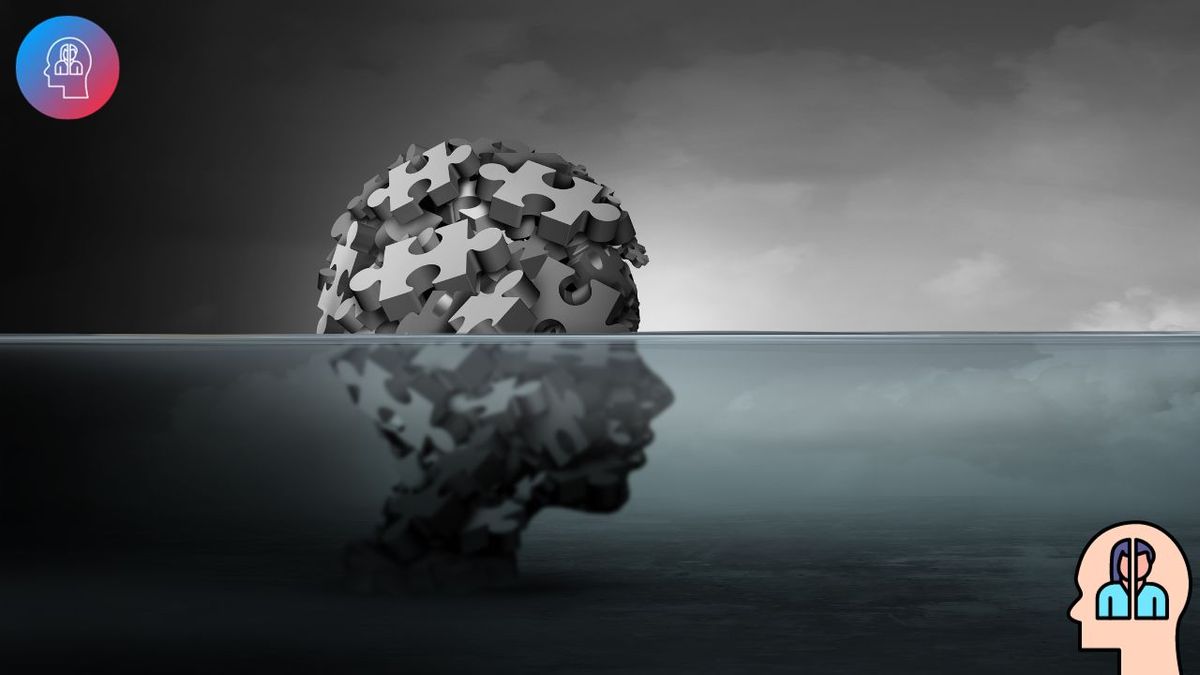What Is Dissociative Identity Disorder In Psychology?
Delve into the intricate world of Dissociative Identity Disorder (DID) and uncover how it's more than just a psychological condition; it's a profound exploration of the human mind's response to trauma.

Ever wondered if it's possible to have your very own ensemble cast living inside your head? Well, in the world of psychology, it's not quite a sitcom, but it's called Dissociative Identity Disorder (DID), and it's more intriguing than a mystery novel!
In this article, we will look at what Dissociative Identity Disorder is and how it affects people including:
- Mind's Greatest Illusion: Learn how DID can make you question everything you thought you knew about the human mind.
- Multiple "You's": Delve into the fascinating world of DID's distinct personalities and discover how they coexist in one person.
- Origin Story: Find out why some minds decide to split into these intriguing and sometimes perplexing fragments.
- The Science Behind the Curtain: Explore the psychological theories and research that help us understand this complex condition.
- Real-Life Stories: Step into the shoes of individuals with DID and discover their remarkable journeys of self-discovery and healing.
- Road to Reconciliation: Learn about treatment options and strategies to bring these diverse identities together in harmony.
So, whether you're a psychology enthusiast or just curious about the mysteries of the human psyche, get ready to embark on a captivating journey into the enigmatic realm of Dissociative Identity Disorder in psychology!

Dissociative Identity Disorder
Dissociative Identity Disorder (DID) is when one person seems to have more than one personality inside them. It's like they have different characters or "parts" living in their mind, each with their name, feelings, and way of acting. Sometimes, these different parts take turns being in control of the person.

People with DID often have trouble remembering things because different parts of them might not know what the others do. DID usually happens because the person went through really tough or scary things, especially when they were young. It's like their mind's way of handling the hard stuff. Treatment involves therapy to help them understand and manage these different parts and the memories and feelings that come with them.
Factors and Risks
Risk Factors: These are things that can make someone more likely to have certain problems or conditions. When it comes to mental health and the risk of suicidal thoughts or actions, some risk factors include:
- Mental Health Conditions: Having conditions like depression, bipolar disorder, or certain anxiety disorders can increase the risk.
- Previous Attempts: If someone has tried to harm themselves before, they are at a higher risk of trying again.
- Substance Abuse: Misusing drugs or alcohol can make it harder to cope with emotions and increase the risk.
- Family History: If someone's family has a history of suicide or mental health issues, it might increase their own risk.
- Stressful Life Events: Going through tough times like a breakup, job loss, or a death in the family can make someone feel overwhelmed and more at risk.
- Access to Means: Having easy access to things like firearms or medications can increase the risk of acting on suicidal thoughts.
Risks: When someone is at risk of suicide or other risks, it means they might be thinking about hurting or killing themselves. It's crucial to take these signs seriously. Signs of suicide risk can include:
- Talking About It: If someone talks about feeling hopeless, trapped, or wanting to die, it's a warning sign.
- Sudden Changes: A sudden shift from being very sad to suddenly calm or happy can be a sign that they decided to harm themselves.
- Isolation: Withdrawing from friends and family or giving away belongings can be concerning.
- Risky Behaviors: Engaging in dangerous or self-destructive actions can indicate a risk.
- Seeking Means: Trying to access ways to harm themselves, like buying a gun or hoarding pills, is a major warning sign.

Is Dissociative Identity Disorder Psychological?
Dissociative Identity Disorder (DID) is a psychological condition. It's a complex mental health disorder that involves the mind's way of coping with severe and chronic trauma, often experienced during childhood. DID is characterized by the presence of multiple distinct identities or personalities within one individual, along with memory gaps and identity confusion.
The condition is considered a result of psychological processes that occur in response to overwhelming and traumatic experiences. Treatment for DID typically involves psychotherapy and support from mental health professionals to help individuals understand and manage their different identities and work toward healing and integration if desired.
